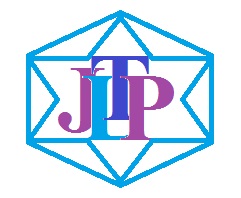Collaboration and Student Motivation Achievement In Physics Learning
DOI:
https://doi.org/10.24114/jltp.v1i1.11048Keywords:
collaboration, achievement, motivationAbstract
Teaching and learning activities that tend to be monotonous and passive lead to low student interest and student achievement. Therefore, this study aims to determine fellow collaboration and achievement of student motivation in learning physics. This research is applied with a learning model in six phases that can increase collaboration, motivation and student achievement, namely choosing topics, cooperative planning, implementation, analysis and synthesis, presentation, evaluation. This type of research is a quasi experiment. The instrument used was a student's conceptual knowledge test in the form of a description of 8 items and student activity sheets namely experimental activities. The results showed that collaboration with good students will affect the achievement of student motivation in learning physics.References
Akçay, N.O., & DoymuÅŸ, K. (2012). The Effects of Group Investigation and Cooperative Learning Techniques Applied in Teaching Force and Motion Subjects on Students™ Academic Achievements. Journal of Educational Sciences Research.International E-Journal, 2(1).
Aksoy, G., & Gurbuz, F. (2013). Group Investigation Teaching Technique in Turkish Primary Science Courses. Balkan Physics Letters: Bogazici University Press.
Arends, R. (2012). Learning to teach, 9th Ed. New York: McGraw-Hill Companies, Inc.
Balta, N. (2015). Development of 3-D Mechanical Models of Electric Circuits and Their Effect on Students™ Understanding of Electric Potential Difference. European Journal of Physics Education, 6(1).
Cheater, F.M., Hearnshaw, H., Baker, R & Keane M. (2005). Can a Facilitated Programme Promote Effective Multidisciplinary Audit in Secondary Care Teams? An Exploratory Trial. International Journal of Nursing Studies, 42(7): 779“91. doi: 10.1016/j.ijnurstu.2004.11.002 PMID: 16084925
Cahyaningrum, R., Parno.,& Muhardjito. (2016). Model Pembelajaran Kooperatif tipe Group Investigation untuk meningkatkan prestasi belajar fisika siswa. Jurnal Pros.Semnas Pend. IPA Pascasarjana UM, 1(2)
Erlinda, N. (2016). Penerapan Metode Pembelajaran Inkuiri Disertai Handout: Dampak Terhadap Hasil Belajar Fisika Siswa SMAN 1 Batang Anai Padang Pariaman. Jurnal Ilmiah Pendidikan Fisika, 5(2)
Harahap, R.A., dan Derlina. (2017). Pembelajaran Kooperatif tipe Group Investigation (GI) dengan Metode Know-Want-Learn (Kwl): Dampak terhadap Hasil Belajar Fluida Dinamis. Jurnal Ilmiah Pendidikan Fisika, 06(2)
Harahap, R., &Turnip, B. M. (2014). Pengaruh Model Pembelajaran Kooperatif Tipe Group Investigation (GI) Berbantu Media Flash Terhadap Hasil Belajar Fisika Siswa SMA. Jurnal inpafi, 2(3),156-162.
Hossain, A., & Tarmizi, R. A. (2013). Effects of Cooperative Learning on Students™ Achievement and Attitudes in Secondary Mathematics. Social and Behavioral Sciences, 30 (3), 832-838.doi: 10.1016/j.sbspro.2013.09.222. Published by Elsevier Ltd.
Husna, Nurul, Alkhafi M.S., & Hotman A.T. (2016). Pengaruh Model Pembelajaran Kooperatif tipe Group Investigation terhadap Hasil Belajar Pengetahuan Konseptual Siswa. Jurnal Pendidikan Fisika. 392-398.
Irwan, Nova & Ridwan A.S. (2015). Efek Model Pembelajaran Kooperatif Tipe Group Investigation dan Teamwork Skills terhadap Hasil Belajar Fisika. Jurnal Pendidikan Fisika, 4(1).
Johnson, D. W., & Johnson, R. T. (2009). An Educational Psychology Success Story: Social Interdependence Theory and Cooperative Learning. Educational Researcher, 38(5), 365-379.
Joshi, S.K. & Bhatnagar, S. (2015). Effect of Cooperative Learning Oriented Teaching on the Academic Achievement of Secondary Level Students. Scholarly Research Journal for Interdisciplinary Studies, 3 (17) : 3015-3023.
Mitchell, M, G., Monthgomery H., Holder M. (2008). Group Investigation as a Cooperative Learning Strategy: An Integrated Analysis of the Literature. The Alberta Journal of Educational Research, 54 (4).
Sagala, S. (2013). Konsep dan Makna Pembelajaran. Penerbit Alfabeta: Bandung.
Simanjuntak, S.M., & Mariati, P.S. (2014). Pengaruh Model Pembelajaran Kooperatif tipe Group Investigation (GI) Berbantuan Media Komputer terhadap Hasil Belajar Siswa Pada Materi Pokok Listrik Dinamis di Kelas X Semester II SMA Negeri 10 Medan T.A. 2013/2014. Jurnal Inpafi, 2(4)
Sousa, D. A. 2006. How the Brain Learns (3rd ed.). Heatherton, Vic: Hawker Brownlow Education
Suryadana, B., Suprihati, T.,& Astutik, S. (2012). Penerapan Model Pembelajaran dan Kooperatif Group Investigation (GI) disertai Media Kartu Masalah pada Pembelajaran Fisika di SMA. Jurnal Ilmu Pendidikan Fisika, 1(3)
Tavakoli, Y., Soltani, A. 2014. The Effect of Cooperative Learning on Students™ Social Skills in The Experimental Science Course. Journal of Education and Practice, 5 (7).
Yuandini, F. (2017). The Effect of Cooperative Learning Model Type Group Investigation Assisted Flash Media, Scientific Attitude on Students™ Conceptual Knowledge. Journal of Education and Practice, 8(17)
Wuri, O. R.,& Mulyaningsih, S. (2014). Penerapan Pendekatan Saintifik Pada Pembelajaran Fisika Materi Kalor Terhadap Keterampilan Berpikir Kritis Siswa Kelas X SMA. Jurnal Inovasi Pendidikan Fisika, 3(3),91-95
Downloads
Published
Issue
Section
License
Copyright (c) 2019 Journal of Learning and Technology in Physics

This work is licensed under a Creative Commons Attribution 4.0 International License.



